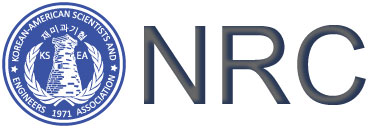KEYNOTE SPEECH I
Abstract
Prenatal brain development is associated with postnatal neurodevelopmental outcomes, and if defective, can cause high-risk neurodevelopmental disabilities. As fetal interventions for brain malformations and psychiatric/neurological brain disorders are emerging, it is of great interest to develop technologies to characterize early brain development in the fetal brain using in vivo magnetic resonance imaging (MRI); investigate several diseases and genetic/environmental effects; detect abnormal brain development early and understand its underlying mechanisms. We developed state-of-the-art techniques to automatically process fetal MRI including deep-learning-based automatic fetal brain extraction and cortical tissue segmentation, accurate 3D cortical surface reconstruction; and automatic parcellation and labeling of cortical areas. Moreover, innovative MRI-based features and methods for cortical growth analysis have been developed. We examined regional cortical thickness and gyrification as well as geometric and topological patterns of cortical folds in typically developing fetal brains and fetuses with developmental disorders: cortical malformations, agenesis of the corpus callosum, congenital heart disease, ventriculomegaly, and Down syndrome. Our novel technologies have demonstrated superior sensitivity in explaining the inter-subject variability of fetal brain structural development and detecting early brain abnormalities compared to conventional technologies.
Dr. Kiho Im
Assistant Professor, Pediatrics, Harvard Medical School
Staff Scientist in the Division of Newborn Medicine, Fetal-Neonatal Neuroimaging & Developmental Science Center (FNNDSC) at Boston Children’s Hospital (BCH)
Biography
Dr. Kiho Im received his PhD in Biomedical Engineering from Hanyang University, South Korea in 2009, and began postdoctoral training as a Research Fellow in the HMS/BCH, FNNDSC. During his tenure at BCH, his expertise lies within neuroimaging analysis using structural and diffusion magnetic resonance imaging (MRI). His goal is to provide unique and biologically relevant imaging biomarkers that not only help us to better understand normal and abnormal brain development, but also aid in the detection and diagnosis of disease. He developed advanced methodologies for quantifying the complex topology of brain cortical folding patterns and brain white matter connectivity/network. These methods led to the discovery that different brain disorders such as polymicrogyria; tuberous sclerosis complex; TUBB3 syndrome; developmental dyslexia; traumatic brain injury; cerebral palsy, have different effects on brain folding and connectivity. Dr. Im has collaborated with world-renowned neuroscientists and geneticists including Dr. Christopher Walsh and Dr. Elizabeth Engle at BCH, providing a more accurate unbiased characterization of brain folding and connectivity in patients with these disorders as well as in genetically-modified animal models of disease. These collaborations have resulted in co-authored papers in Science (2014), Nature (2018), Neuron (2018), and Cerebral Cortex (2018) where Dr. Im’s contribution is his unique image analysis.
